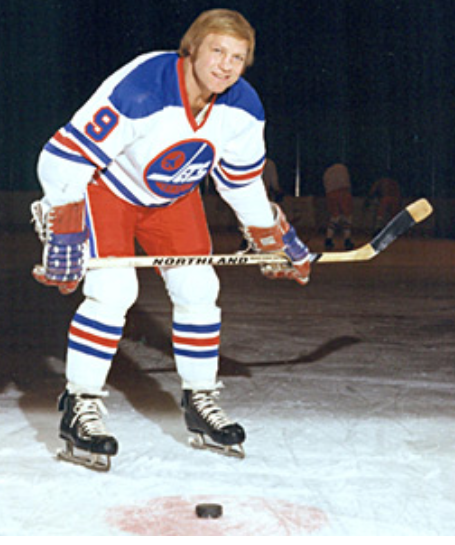- Home
- Hockey Resources
- World Hockey Association Merger
World Hockey Association Merger

The World Hockey Association, founded in 1971, was the first real challenge to the NHL’s dominance in North American professional hockey since the Western Canada Hockey League fizzled out in 1926.
WHA hockey was no joke. With the likes of Bobbly Hull, Gordie Howe and Wayne Gretzky, the upstart league had teams in major Canadian and U.S. markets, and was doing something new and exciting by heavily recruiting European players to join its ranks. By 1979, however, the league was in trouble, and the result was the NHL-WHA merger that solidified the NHL’s grip on the market for the foreseeable future. There were essentially two things that led to the demise of the WHL and the eventual merger: money and beer. By way of explanation, let’s start with a quick look at WHA hockey history.
The World Hockey Association
The WHA operated in an era where upstart leagues were drawing a lot of attention. The AFL (American Football League) was big news in football from its founding in 1959 until its 1970 merger with the NFL. The ABA (American Basketball Association), featuring the amazing Dr. J and a whole lot more, enjoyed similar popularity from its founding in 1967 until it merged with the NBA in 1976.
The WHA was founded by the two men who started the ABA — Dennis Murphy and Gary Davidson — so in addition to favorable timing, the new hockey league had experienced leadership at the helm. Relations with the NHL were awful from the beginning, marked by continual disputes, legal battles and turf wars.
Besides horning in on NHL markets such as Philadelphia (Blazers), Toronto (Toros) and Chicago (Cougars), the WHA was also disrupting the NHL by putting upward pressure on player salaries. In 1972, Derek Sanderson, playing for the Philadelphia Blazers, ditched the Bruins for $2.65 million, the highest professional sports salary in the world at the time. This move turned out to be a disaster for the WHA, however, as Sanderson suffered from injuries and performed poorly, lasting only one season. A far better deal for the WHA happened when Blackhawks legend Bobby Hull signed with the Winnipeg Jets in 1972. Hull’s involvement gave the new league huge credibility and paved the way for other NHL stars to defect, pushing the competition for players and their pay up and up.
Money Miseries and Merger Talks
After only a few years, both leagues were feeling the pain of competition right where it hurts — in the pocketbook. Player salaries and legal expenses were draining revenues for all the teams, but NHL president Clarence Campbell had a combative attitude, preferring to bury the rival league than join forces. Furthermore, Canadian NHL teams were holding up better financially than American teams because of rabid fan support and Hockey Night in Canada revenues. However, in 1967, John Ziegler succeeded Campbell. The first U.S. citizen to hold the office, Ziegler was much more open to merger talks.
The WHA had never established solid financial footing, and by the late 1970s World Hockey Association teams were struggling to make payroll. In 1979, a merger agreement between the WHA and NHL was put before the NHL Board of Governors, in which the NHL would absorb the New England Whalers, Winnipeg Jets, Edmonton Oilers and Quebec Nordiques.
The agreement fell one vote short of ratification, with heavy resistance from the Bruins (who didn’t want local competition from the Whalers), the Canucks and Kings (who wanted to preserve their schedules with eastern teams), the Maple Leafs (who didn’t want their Hockey Night in Canada revenue share diluted) and the Canadiens (who wanted to preserve their iron-grip monopoly on Quebec).
Beer to the Rescue
The Montreal Canadiens were owned by Molson Brewery, the company that also happened to be the beer supplier to three WHA teams (Nordiques, Oilers and Jets). Those teams’ fans wanted in with the NHL, and thus decided to boycott Molson in protest. The boycott caught on all across Canada, and the Canadiens, perhaps crying in their beer, reversed course and voted in favor of the merger on a second vote, with the Canucks joining them. The deal was done.
Aftermath of the WHA-NHL Merger
The four WHA teams each paid the NHL $6 million to join. The other two WHA teams, the Cincinnati Stingers and Birmingham Bulls, got $1.5 million each and shut down. The NHL put the WHA teams at the bottom of the 1979 Entry Draft, allowed the teams to keep only two goalies and two forwards, and forced them to pay $125,000 per player in the 1979 Expansion Draft. Despite the rocky road into the NHL, the old WHA teams survived — the Edmonton Oilers did much more than that, winning seven Stanley Cups starting in 1983-84.
WHA hockey changed the NHL and professional hockey in three important ways:
- Player salaries began to rise dramatically because players finally had negotiating leverage.
- Players from Europe began to join NHL teams in a big way, deepening the talent pool and raising the level of competition.
- Not only European players, but U.S. players as well began to get more attention from NHL recruiters, who before the WHA concentrated most of their efforts within Canada.
In short, the WHA raised the quality of hockey in the NHL for the long term, and in the process has given hockey fans more to get excited about season after season.
(Image Credit – Hockey Hall of Fame)
 Loading... Please wait...
Loading... Please wait...


